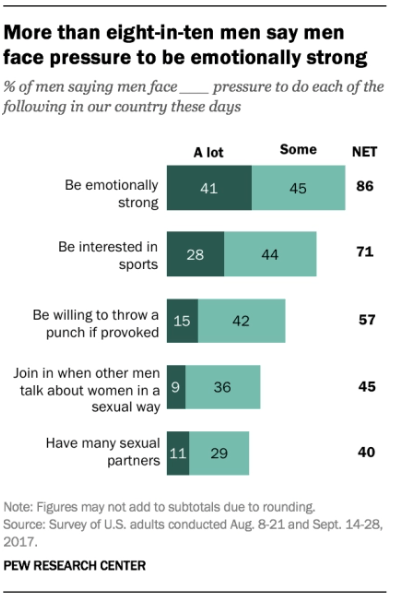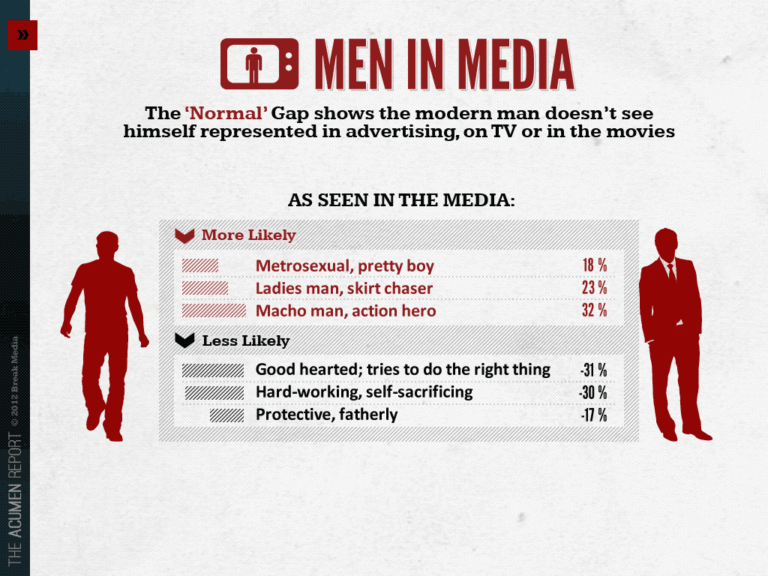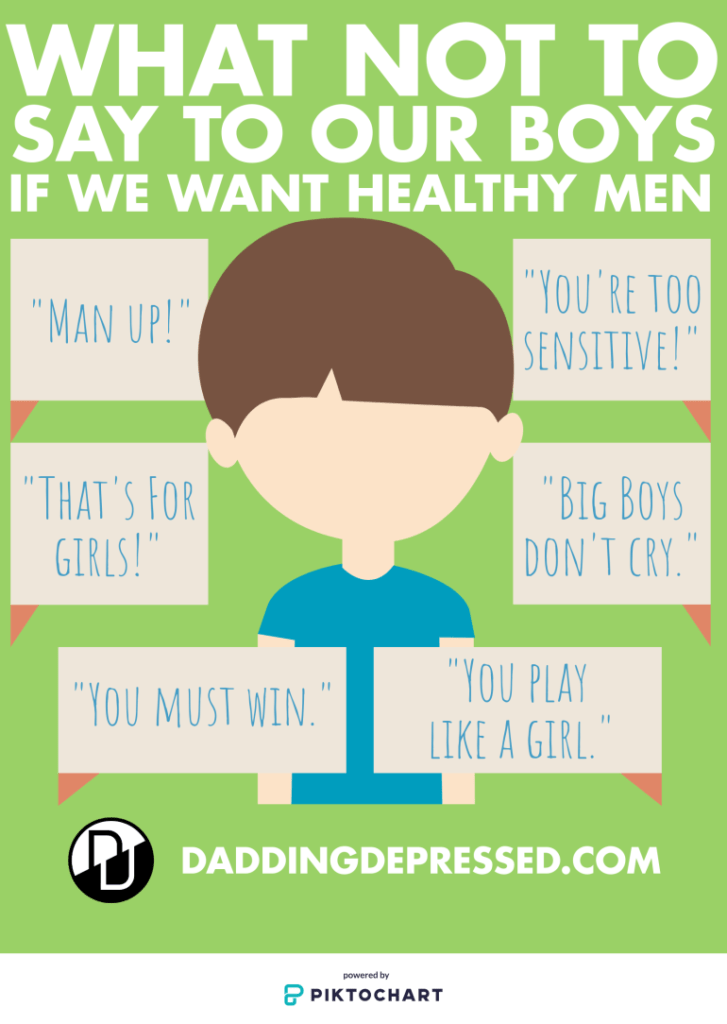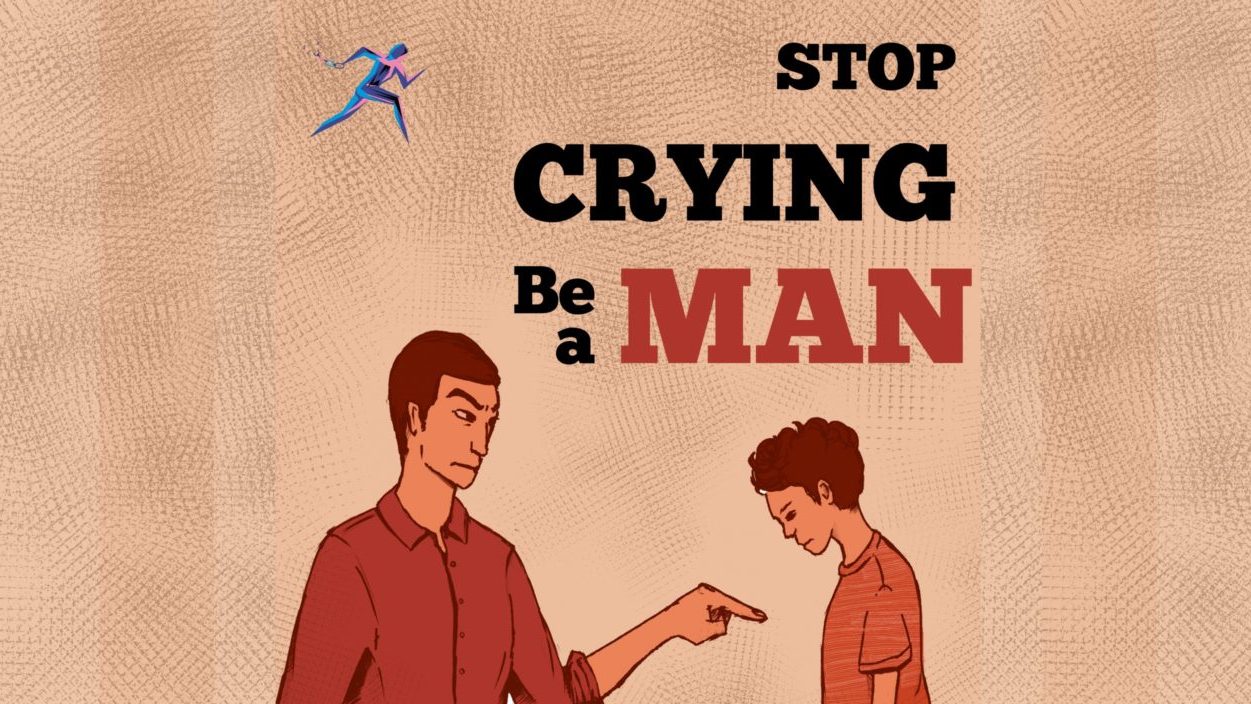I will never forget how a friend of mine got berated by his father during a football match. The boy was disproportionately small and was rolling on the ground howling in pain. His father had said, “Stop crying! Get up and play like a man!” The seeds of “toxic masculinity” are sown and allowed to grow from a very young age. One might think that mostly working men are affected by this but it could not be far from the truth. Like any gender norm, toxic masculinity begins in the safety and shelter of home. Like ducklings honing the flight or fight responses to combat the dangers of the outside world, young and impressionable boys inevitably end up internalizing toxic traits from their immediate surroundings. Unlike survival instincts however, it forces them to grow up with repressed trauma, over-reliance on violence, the need to have control and be dominant and a fragile male ego. It alienates them from themselves and prevents them from fully expressing their identity and realizing their potential.
While the construct of masculinity is not outright problematic, toxic masculinity refers to traditionally masculine gender norms that are harmful to both men and the wider society. It is characterized by the need for men to be dominant, strong and aggressive in order to be accepted in society. Emotions are considered to be “weak” and showing an exterior of toughness is thought to be necessary for someone to “man up” and survive. It makes it extremely difficult for men to be in touch with their emotions or to healthily heal from setbacks and heartbreaks. This includes forcing them to be tough and solving their problems with brutish, violent behaviour. Often, it is women who bear the brunt of men’s self loathing and rage and are subjected to dehumanizing gender norms as a result of men wanting to feel dominant. In extreme cases, it makes men more prone to substance abuse, mental instability and cardiovascular diseases while promoting crime, domestic violence and sexual assault.

So how are boys force-fed this dangerous narrative from their formative years? Parental teachings rooted in certain cultural norms and media portrayals are largely to blame. Our prominent brown culture assigns males as the primary breadwinner of the family while expecting them to excel on all fronts. Unfortunately, this image of a “model minority” imposes restrictions and immeasurable burdens on boys indiscriminately, even on those who want to express themselves differently. From a young age, boys are led down a path of sports and athletics without their artistic inclinations even being considered. They are discouraged from playing with dolls, applying makeup or anything that is considered ‘‘too feminine.’’ Engineering, natural sciences and politics are thought of as the only acceptable career paths for men. Hustle culture forces teenagers to constantly work hard and let go of their less utilitarian passions, much to the detriment of their mental and physical well-being. All of these restrictions, when combined together, instill the idea that there is only one correct way to be a man. It hampers the beautiful journey of self discovery that all boys deserve to have. Instead, they feel like their worth is measured by how much they earn and that failure is simply not an option.
Despite being forced to hold up their families, much like how the Greek God Atlas holds up the entire world, boys are taught not to be vulnerable and that letting their tears run free is a sign of weakness instead of self acceptance and growth. It means that they are often alone when navigating their mental health and emotions in a void of darkness without a light at the end of the tunnel. Parents often rely on tough love and corporal punishment as a way to “discipline” their kids when they get too far out of line. The wounds from the beatings might fade away in a couple of weeks but the deep psychological scars remain for a much longer time. Heart-heart conversations are rare and parents seldom air their emotions in an articulate manner for their children to understand. All of this leads to the formation of an environment where facing one’s emotions, sharing them and being vulnerable in the process is looked down upon. When boys grow up in such an environment, they are at risk of mental disorders and illnesses like depression and may rely on harmful coping mechanisms as a first resort.

Even when parental and social intervention is kept to a minimum, peer groups and media still play a huge role in propagating toxic masculinity. Children tend to mimic the things they see and go along with toxic narratives in order to be liked. They also tend to adopt role models that turn out to be problematic. Too often, movies and tv shows portray males as the proud “macho man” who uses violence to solve his problems and is rewarded with the “girl at the end”. It normalizes power dynamics in relationships while making it look appealing. The lack of strong male and female friendships also makes boys think that girls are either “enemies” or “lovers” with nothing in between while trophy characters lead to the casual objectification of women as prizes to be won. This show of machismo extends to how males are supposed to approach conflict resolutions. Violence in the form of unnecessary fight scenes and a general lack of deftness when navigating problems are common. Even in peer groups, boys tend to go along with problematic echo chambers and toxic environments because they fear ostracism. Taunts, jeers, bullying and harassment are normalized by the phrase “boys will be boys” which promotes passive behaviour while attributing these negative traits to the identity of a man.

Parents need to start opening up to their kids and show vulnerability. They need to encourage open communication and sharing of emotions without fear of judgement. Boys deserve to be allowed to grow in their own way and their preferences and expressions must be treated with respect and dignity. Corporal punishment and tough love is unacceptable under any circumstance and parents must take an active role in deconstructing gender norms and harmful media portrayals. The roots of toxic masculinity begin at home and it is important to let our kids run free instead of beating them into submission. True strength lies not in physical prowess or tough guy machismo, it lies in being kind and caring despite all that life throws at you.


Pingback: Taking the fight to Patriarchy – ZEST
Pingback: It’s Time Women Stopped Being The Only Managers Of Our Homes – TDA